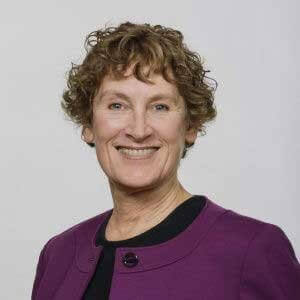Why You Should Visit a Clinic
By Jayne Dixon Weber
While every Fragile X clinic is set up a little differently, they all offer similar services. They are staffed by people who understand Fragile X.
Examples of evaluations offered at clinics through an initial intake include:
- Medical
- Speech
- Occupational
- Physical and behavioral therapy
- Genetic counseling
Additional specialist services may include referrals to:
- Psychiatrists
- Psychologists
- Neurologists
- Cardiologists
- Ophthalmologists
- Dentists
- Social workers
- Audiologists
Adding a Fragile X Specialist to Your Care Team
After your visit, most clinics will provide you with a written summary of all evaluations that took place, along with recommendations you can take back to your local doctor and/or school district.
Visiting a clinic does not replace the need for a local doctor. It is still very important that you have a family physician who can handle the everyday ailments of your child or children, but it is crucial that this doctor is willing to work with you on your specific issues regarding Fragile X. Once you establish a relationship at a Fragile X clinic, the clinic doctor becomes a valuable resource for your local doctor. You all become a team with all of a team’s advantages.
Planning Your Visit
If you have never been to a Fragile X Clinic or it has been a while, or if you are having issues with behavior, school, or therapies, or if you want to get involved in clinical trials, I would suggest you visit one in the near future. Once you make that initial visit, I would recommend yearly follow-ups.
Visiting a clinic keeps you in-tune and hands-on with what‘s going on in the Fragile X world. It also gives your clinic doctor an opportunity to keep abreast of your child’s health needs, which will make it all the more effective when your local doctor has occasion to consult with your clinic doctor about your child.
Another important point: I think you will be happier with your visit and get more out of it if you take an active role in the process ahead of time. Before you call the clinic coordinator, think about the concerns you have for your child or children, what you would like to know more about, and any specific questions you may have. Call the coordinator and discuss these matters, and about what you hope to get out of your visit. You are also going to want details of what is going to happen so you can adequately prepare your child. Do not be afraid to ask any question. And before ending the call, I always like to ask the clinic coordinator one last question: Can you think of anything I haven’t thought of?
When you plan your clinic visit, be sure to think about the big picture. That most certainly includes preparing your child emotionally. This will be a huge change in routine, including the travel (drive or flight), the actual clinic visit, a possible overnight stay, maybe a second day of clinic visits, the trip home, and then the readjustment back into family life. For most families, this represents a major undertaking.
What do families typically say to me about their clinic visit?
- It is so comforting to talk with someone who understands my child.
- It is so nice not to have to explain everything — again.
- I don’t have to make excuses or try to explain my child’s behavior.
- We are like family to them (the doctors).
- With report in hand, my school takes me more seriously.
- I came home feeling re-energized.
Fly With Me Fund
If you are having trouble funding your trip to this clinic, the Fly with Me Fund provides financial assistance for families to travel to a Fragile X member clinic of the FX Clinical and Research Consortium (FXCRC) so they can receive the most appropriate evaluation and treatment services. To begin the application process, please talk to the clinic coordinator when you schedule your appointment. Special thanks to the Silver Family for their continuous fundraising efforts that help make this program possible.
AUTHOR
 Jayne Dixon Weber has been a member of the NFXF team since 2007 and currently serves as the director of education and support services. She has two children — an adult son with Fragile X syndrome, and a daughter who is an occupational therapist. In addition to assisting with the development of the NFXF’s Adolescent and Adult Project, Jayne authored the book Transitioning Special Children into Elementary School and is the editor for the book Children with Fragile X Syndrome: A Parents’ Guide. She is also the co-leader of the Colorado Fragile X Community Support Network group. Jayne likes to read, enjoys photography, and goes for a walk every day.
Jayne Dixon Weber has been a member of the NFXF team since 2007 and currently serves as the director of education and support services. She has two children — an adult son with Fragile X syndrome, and a daughter who is an occupational therapist. In addition to assisting with the development of the NFXF’s Adolescent and Adult Project, Jayne authored the book Transitioning Special Children into Elementary School and is the editor for the book Children with Fragile X Syndrome: A Parents’ Guide. She is also the co-leader of the Colorado Fragile X Community Support Network group. Jayne likes to read, enjoys photography, and goes for a walk every day.

